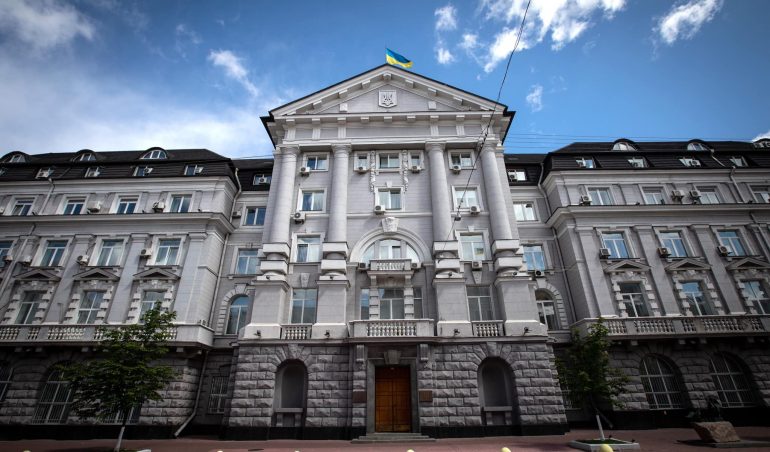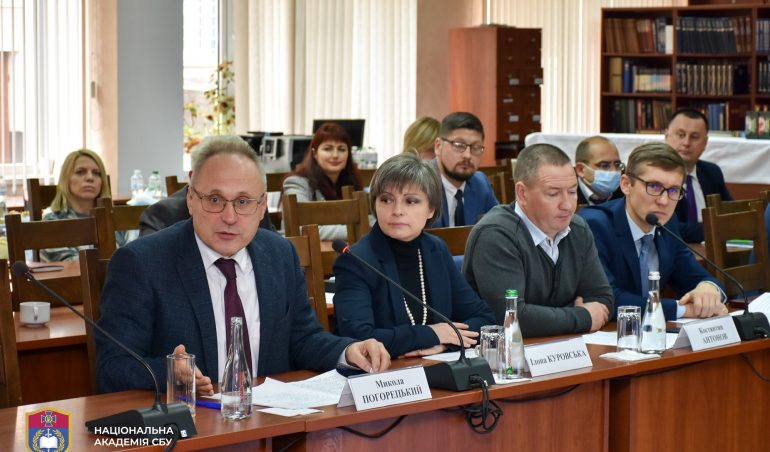Opinion: International Advisory Group on Reform of the Security Service of Ukraine
November 08, 2021
Ukraine is facing a historic opportunity to advance its Euro-Atlantic path. The draft law on the Security Service of Ukraine (SSU), initiated and supported by the President, is ready for a final vote in the plenary of the Verkhovna Rada. This comes after several years of efforts to try to reform the SSU.
We, the representatives of the EU, NATO, and the United States, strongly support the draft law currently in the Verkhovna Rada (#3196-d). If adopted in its current form and fully implemented, the new law will provide a promising basis for substantial reform and modernization of the Service in line with European and Euro-Atlantic principles and best practices. Importantly, the draft law foresees the complete phasing out of pre-trial investigative powers, significant downsizing and de-militarisation of the Service, elimination of its role in economic investigations, and strengthening oversight mechanisms.
We call on all political parties in the Verkhovna Rada to seize this historic opportunity and adopt the draft law without delay. This would be a significant milestone for Ukraine on its path towards the EU and NATO. We commend President Zelensky for his personal commitment and support for his reform.
Boosting Trust in Ukraine
Transforming the SSU into a modern, de-politicized and efficient service is essential if Ukraine wishes to bring the Service in line with Euro-Atlantic and European principles and best practices. The SSU performs vital functions under its core mandate – counterintelligence, counterterrorism, and the protection of state secrets. Now, more than ever, these functions need to be successfully deployed to protect Ukraine from Russia’s hybrid aggression and other threats to national security. The Service’s current scope, a legacy of Soviet structures, duplicates intelligence and law enforcement functions performed by other Ukrainian institutions and detract focus from its vital core functions. Modernizing the Service will bring greater opportunities for international cooperation and partnership with Western services.
A Shift from Law Enforcement
A central reform element in the draft law is the gradual termination of SSU pre-trial investigative powers. This would transform the SSU into a Special Service focused on counterintelligence rather than law enforcement. Pre-trial investigative powers would move to law enforcement agencies that are better placed to investigate crimes and operate under stricter oversight than intelligence agencies.
The transformation foreseen in the draft law would take place in a phased manner. This would allow the Service to continue carrying out its operations without disruption while Ukraine builds capacity in the agencies receiving the new powers. This is particularly important considering Russia’s continued aggression and the ongoing Donbas conflict. The SSU would first narrow its pre-trial investigative powers to espionage, terrorism, and high treason in mid-2022. These three competencies would continue until the end of 2024 when the SSU would fully transition to a counterintelligence agency, analogous to security services in EU and NATO member states.
A crucial next step for this transformation will be the timely adoption of a so-called “satellite” law regulating necessary amendments to Ukraine’s administrative offences, criminal, and criminal procedure codes. The “satellite” law is essential to ensure the smooth transfer of investigative authorities from the SSU to other law enforcement agencies. We expect that the Law Enforcement Committee of the Verkhovna Rada, holding the pen for the “satellite” law, willfully align it with #3196-dto ensure that the complete phasing out of investigative powers takes place within the established deadlines.
Other key elements in the draft law include the immediate introduction of a temporary parliamentary oversight system (until a dedicated Parliamentary Oversight Committee is established), the downsizing of staff to 20,000 and de-militarization of most of the Service. The attestation of staff is a process that can help achieve this.
There are open questions in the draft law related to the inclusion of far-reaching powers that may infringe on human rights and fundamental freedoms, as well as the use of physical force, special means, firearms, and detention facilities; ambiguities in the attestation of SSU staff; and the possibility to appoint redundant SSU staff without competition for positions in other agencies.
These weaknesses should be addressed, especially during the implementation of key provisions enhancing judicial control and oversight, but should not prevent the Verkhovna Rada from adopting the draft law as soon as possible. Since Ukraine declared independence, never have the conditions been so fortuitous to launch the transformation of the SSU. The window of opportunity is now and should not be missed.
A new Law on the SSU and a fully-aligned “satellite” law will provide Ukraine with a clear roadmap for implementing this vital reform for Ukraine’s Euro-Atlantic future and the security of its citizens.
Signed by
Matti Maasikas, Head, EU Delegation to Ukraine
Vineta Kleine, Acting Head, NATO Representation to Ukraine
Kristina A. Kvien, Chargé d’Affaires, a.i. of the United States Embassy in Ukraine
Antti Hartikainen, Head, EU Advisory Mission Ukraine
*This op-ed was originally published in Ukrayinska Pravda on 8 November 2021





